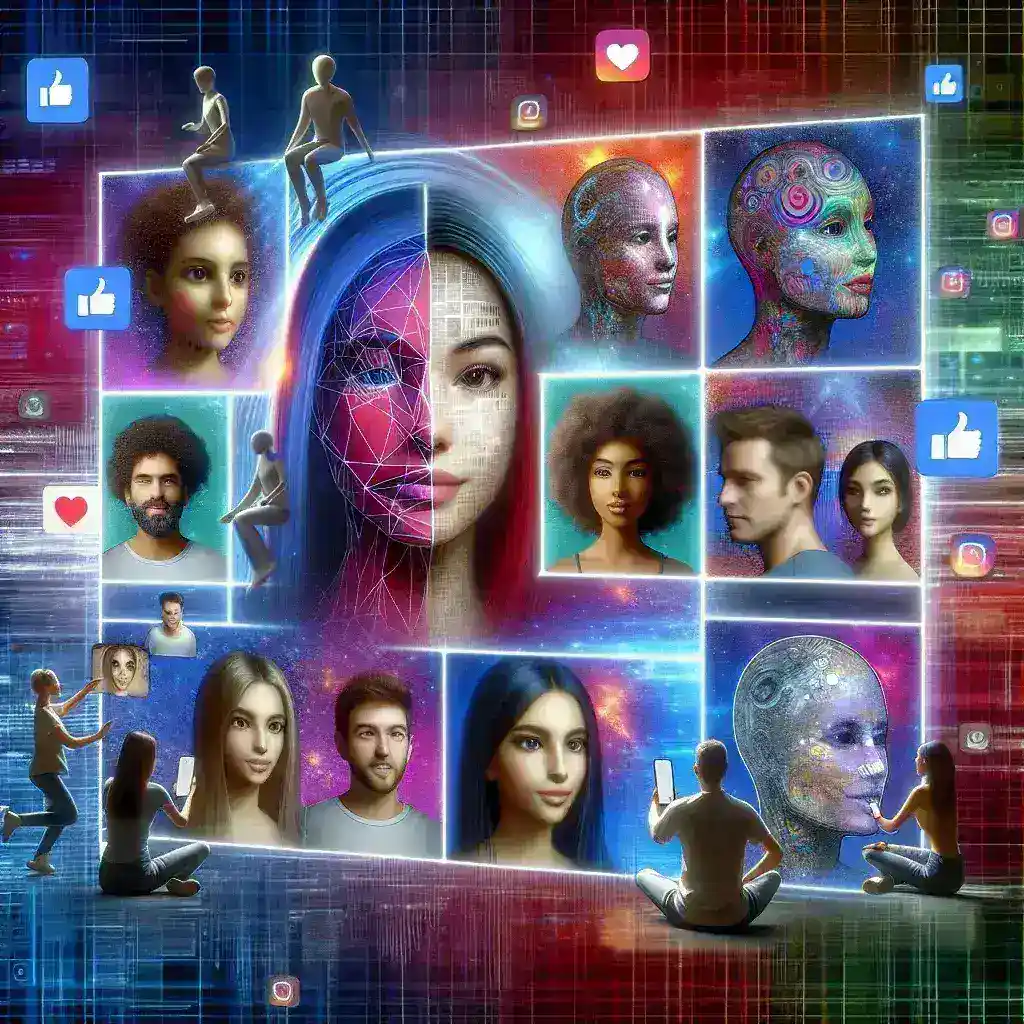The Evolution of Digital Identity: TikTok’s AI Filters Revolutionize Self-Expression
In the ever-evolving landscape of social media, TikTok has once again pushed the boundaries of digital innovation with its latest suite of AI-powered filters. These cutting-edge tools have ignited a global conversation about the nature of digital identity, authenticity, and the increasingly blurred lines between virtual and reality. As these new filters gain popularity, they’re not just changing how we present ourselves online – they’re fundamentally challenging our understanding of identity in the digital age.
Understanding TikTok’s New AI Filter Technology
TikTok’s latest AI filters represent a quantum leap in digital image manipulation technology. Unlike traditional filters that simply adjust colors or add basic effects, these new tools use advanced machine learning algorithms to transform users’ appearances in real-time, creating highly sophisticated and often startlingly realistic alterations.
Key Features of TikTok’s Advanced AI Filters
- Real-time facial reconstruction capabilities
- Deep learning-powered expression modification
- Advanced body morphing technology
- Personality-based filter recommendations
- Context-aware background transformation
The Cultural Impact of AI-Enhanced Digital Identity
The introduction of these sophisticated AI filters has sparked intense debate across various communities. While some celebrate these tools as a form of creative expression, others raise concerns about their potential impact on self-image and social expectations. The conversation extends beyond mere entertainment, touching on fundamental questions about authenticity in the digital age.
The Positive Perspective: Creative Liberation
Proponents of TikTok’s AI filters argue that these tools represent a new frontier in digital self-expression. They point to several benefits:
- Enhanced creative possibilities for content creators
- Democratization of advanced editing capabilities
- New forms of artistic expression
- Increased engagement and community building
- Opportunities for digital storytelling
The Critical Viewpoint: Authenticity Concerns
Critics, however, raise valid concerns about the potential negative implications of these powerful tools:
- Impact on body image and self-esteem
- Creation of unrealistic beauty standards
- Potential for digital deception
- Privacy and data security concerns
- Psychological effects on young users
The Psychology Behind Digital Identity Formation
The relationship between AI filters and personal identity formation is complex and multifaceted. Psychologists and social researchers are increasingly studying how these digital tools influence self-perception and social interaction. Their findings suggest that the impact of AI filters extends far beyond mere entertainment, potentially affecting users’ mental health and social development.
Impact on Self-Perception
Research indicates that regular use of AI filters can significantly influence how individuals view themselves and others. This phenomenon has several key aspects:
- Altered self-image expectations
- Changes in social comparison patterns
- Impact on personal confidence levels
- Shifts in identity construction
- Effects on social interaction patterns
The Technical Revolution Behind the Filters
The technological advancement driving these new filters represents a significant leap in artificial intelligence and computer vision. Understanding the technical aspects helps frame the broader discussion about their impact and potential future developments.
Key Technical Innovations
- Advanced neural network architectures
- Real-time processing capabilities
- Enhanced facial recognition algorithms
- Improved motion tracking systems
- Sophisticated image synthesis techniques
Social Media Platforms’ Responsibility
As these AI filters become more prevalent, questions arise about the responsibility of social media platforms in managing their impact. TikTok and other platforms face increasing pressure to address concerns while maintaining innovation.
Platform Initiatives and Responses
- Implementation of age restrictions
- Content warning systems
- Educational resources about filter usage
- Mental health support information
- Community guidelines updates
The Future of Digital Identity and AI Filters
As technology continues to evolve, the future of digital identity and AI filters promises even more sophisticated developments. Industry experts predict several emerging trends:
Anticipated Developments
- More sophisticated personality-based filters
- Enhanced reality-virtual integration
- Advanced emotional recognition features
- Improved authenticity verification tools
- Greater personalization capabilities
Navigating the New Digital Landscape
As we continue to navigate this evolving digital landscape, it’s crucial to maintain a balanced perspective on the use of AI filters and their impact on digital identity. Users, platforms, and society at large must work together to harness the creative potential of these tools while addressing legitimate concerns about their impact.
Best Practices for Users
- Maintaining awareness of filter effects
- Setting healthy boundaries for usage
- Understanding the technology’s limitations
- Preserving authentic self-expression
- Developing critical media literacy
Conclusion: Balancing Innovation and Authenticity
The debate over TikTok’s AI filters reflects broader societal questions about technology, identity, and authenticity in the digital age. While these tools offer exciting new possibilities for creative expression and digital interaction, they also require thoughtful consideration of their impact on individual and collective well-being.
As we move forward, the key lies in finding a balance between embracing technological innovation and maintaining authentic human connection. The conversation around TikTok’s AI filters serves as a crucial touchpoint in our ongoing negotiation of digital identity and self-expression in the modern world.
Looking Ahead
The future of digital identity and AI filters will likely continue to evolve, bringing both new opportunities and challenges. As users and society adapt to these changes, maintaining open dialogue and critical awareness will be essential in shaping a healthy digital future that balances innovation with authenticity and personal well-being.

